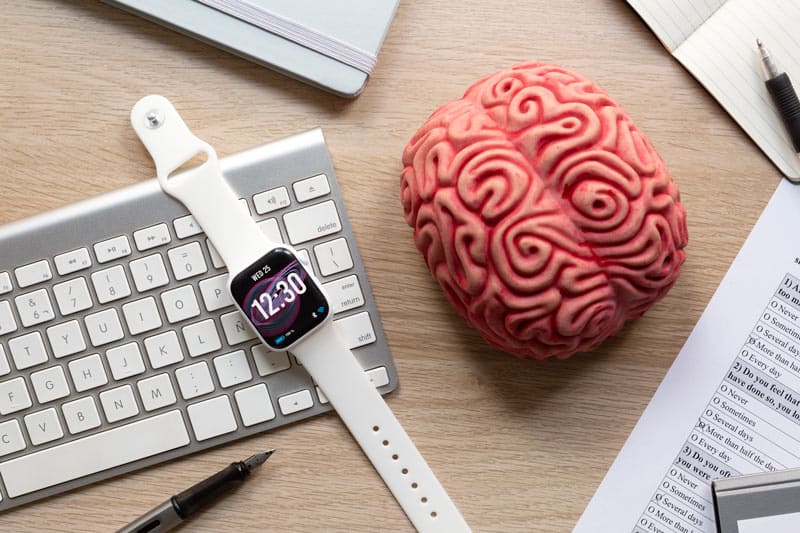In the realm of medical conditions, the intersection between neurological disorders and disability qualifications holds significant importance. This blog delves into the intricate landscape of neurological disorders that meet the criteria for disability classification. A comprehensive breakdown of the various types of neurological disorders that potentially warrant eligibility for disability benefits will be explored.
By shedding light on the nuanced relationship between neurological impairments and disability, this piece aims to provide valuable insights for individuals seeking a clearer understanding of the conditions that could potentially impact their eligibility for vital support.
Book an appointment with the best neurologist in Brooklyn now!
Understanding Disability Eligibility Criteria
When it comes to ascertaining eligibility for disability benefits in the context of neurological disorders, a comprehensive grasp of the qualification criteria is crucial. The process involves a meticulous assessment conducted by relevant authorities to determine whether a neurological disorder aligns with the prerequisites for receiving disability benefits. Primarily, this evaluation hinges on the extent to which the disorder hampers an individual’s ability to engage in substantial gainful activity (SGA), essentially work that provides financial sustenance. The severity and longevity of the neurological disorder play pivotal roles in this determination. Authorities delve into medical records, clinical examinations, and functional assessments to gauge the disorder’s impact on an individual’s day-to-day activities, social interactions, and vocational capabilities.
It’s important to note that the evaluation doesn’t solely revolve around the diagnosis itself; rather, the focus lies in how profoundly the disorder disrupts an individual’s capacity to maintain gainful employment. This multifaceted approach underscores the nuanced nature of neurological disorders, where symptoms can manifest differently among individuals. Consequently, the eligibility criteria encompass a spectrum of disorders such as epilepsy, multiple sclerosis, Parkinson’s disease, and more. Understanding these intricate criteria is essential for individuals navigating the landscape of disability benefits, as it empowers them with the knowledge needed to present a compelling case for their eligibility based on the specific impact of their neurological disorder.
Common Neurological Disorders Considered for Disability
Within the realm of disability evaluation, several prevalent neurological disorders hold potential eligibility for disability benefits due to their substantial impact on an individual’s daily functioning. These disorders encompass a wide spectrum, often encompassing conditions such as multiple sclerosis, a chronic autoimmune disease that affects the central nervous system and can lead to symptoms ranging from fatigue to mobility impairment. Similarly, the complexities of Parkinson’s disease, a progressive neurodegenerative disorder that primarily affects movement, can significantly impede an individual’s ability to carry out routine tasks and maintain employment.
Epilepsy, characterized by recurrent seizures, also falls within this purview. The unpredictability and potential severity of seizures can limit an individual’s independence and occupational capabilities. Additionally, various movement disorders, such as Huntington’s disease and amyotrophic lateral sclerosis (ALS), showcase the intricate nature of neurological conditions that qualify for disability. These conditions can lead to involuntary movements, muscle weakness, and the progressive loss of motor functions. By recognizing and enumerating these common neurological disorders, individuals navigating the complexities of disability evaluation gain a more informed perspective on the conditions that authorities may consider when assessing eligibility for crucial disability benefits.
Medical Documentation and Disability Claims
The foundation of a compelling disability claim rests upon the presence of comprehensive medical reports and records that aptly depict the nature and impact of the neurological condition in question. These documents not only serve as a substantiated account of the individual’s health journey but also play a pivotal role in providing the adjudicating authorities with a clear understanding of the disorder’s severity and its implications on the individual’s ability to work and engage in daily activities.
Medical reports, including clinical evaluations, diagnostic tests, and specialist opinions, offer a comprehensive perspective on the progression and manifestations of the neurological disorder. These reports go beyond mere diagnosis, delving into the specific symptoms experienced, treatment plans pursued, and their outcomes. A crucial aspect to emphasize is the consistency and thoroughness of documentation over time, as it demonstrates the persistence and enduring impact of the disorder. By meticulously collecting and organizing medical records, individuals not only bolster their case for disability benefits but also underscore their commitment to transparency and accuracy throughout the evaluation process. In essence, the veracity and relevance of medical documentation form the cornerstone of a well-substantiated disability claim, bridging the gap between the medical intricacies of neurological disorders and their potential ramifications on an individual’s vocational capacity.
Legal and Medical Support for Disability Claims
Partnering with both medical and legal professionals can significantly enhance the chances of a successful disability claim application. By enlisting the assistance of a skilled disability attorney, individuals can tap into a wealth of experience in maneuvering the complex legal landscape associated with disability benefits. Attorneys well-versed in this domain understand the nuances of presenting a compelling case, ensuring that all necessary documents are included, timelines are met, and the claim aligns with the established legal criteria. Their expertise transforms the often bewildering legal jargon into comprehensible terms, empowering claimants to make informed decisions and present a robust case that stands out among the multitude of applications.
On the medical front, seeking specialized medical support is equally paramount. Collaborating with healthcare professionals who have experience in dealing with disability claims bolsters the credibility of the application. Medical experts can provide detailed reports that explicitly outline the connection between the neurological disorder and its impact on an individual’s employability. These reports can be instrumental in highlighting the severity of symptoms, the efficacy of treatments pursued, and the prognosis for the future. Furthermore, professionals in both the legal and medical fields can work synergistically, harmonizing the legal arguments with the medical evidence, thereby constructing a comprehensive case that maximizes the potential for success.
Ultimately, the amalgamation of legal and medical support not only simplifies the daunting process of applying for disability benefits but also significantly elevates the probability of a favorable outcome for individuals facing the challenges of neurological disorders.

